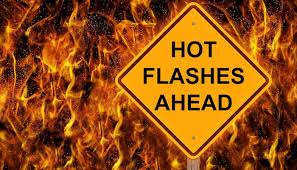Products You May Like
Article content
LIMA — Peru’s presidential front-runner has proposed nationalizing mining and redrafting the Andean country’s Constitution, raising risks to mining investment in the world’s no. 2 copper producer that could put upward pressure on prices of the red metal.
Mining industry insiders and analysts have expressed alarm about Pedro Castillo, the surprise socialist favorite for the June run-off who often sports a cowboy-style hat and who has gained support in Peru’s rural hinterlands.
Castillo has a strong lead over conservative Keiko Fujimori in pre-election polls after surging from relative obscurity to win the first round this month, when he rode on a horse to vote and pledged to be a champion for the country’s poor.
The leftist has said Peru needs to nationalize gold, silver, uranium, copper and lithium to “rescue” its strategic resources and redirect the mineral wealth away from rich mining companies to help alleviate widespread poverty.
“Castillo is not moderating his positions at all and it seems that he won’t do so,” said Roque Benavides, Chairman of miner Buenaventura. Benavides said he was not ready to call any candidate an “enemy” of the sector and that dialog was key.
However, he said Castillo appeared more radical than former Peruvian President Ollanta Humala, who after winning the 2011 election softened his anti-establishment rhetoric and shifted away from leftists like Venezuelan socialist leader Hugo Chávez.
Advertisement
Story continues below
This advertisement has not loaded yet, but your article continues below.
Article content
“It will be more difficult for (Castillo) to change.”
Brokerage Jefferies said in a report that election uncertainty raised risks for Peruvian mining and that Castillo could usher in “mining nationalism.” Under Fujimori, miners could still see taxes and royalties rise.
“While the outcome of the upcoming runoff may not significantly impact volumes from existing mines in the country initially, the risk premium for investing in Peru is likely to increase,” it said.
“Higher risk means less investment, less supply over time, and a higher copper price.”
TIME FOR REFLECTION?
Peru accounts for some 11% of global copper production, second to neighboring Chile. Peru’s mining sector has taken a big hit during the coronavirus pandemic, with a new wave of cases hitting the country again in recent weeks.
Fujimori, daughter of ex-president Alberto Fujimori who is imprisoned for human rights abuses, supports a free market economic model though she is being investigated over allegations she received bribes, charges she denies.
Victor Gobitz, president of the powerful Peruvian Institute of Mining Engineers (IIMP) chamber, told Reuters that if the sector wanted to grow then it needed “dialog and consensus” with the winning candidate.
Peru is also the world’s second largest producer of silver and zinc and the sixth of gold. It hosts global miners like Freeport McMoRan, MMG Ltd group, Aluminum Corp , Newmont Corp, Barrick Gold and Southern Copper of Grupo México among others.
Advertisement
Story continues below
This advertisement has not loaded yet, but your article continues below.
Article content
Gobitz, who is also president and CEO of the local Antamina mine controlled by BHP and Glencore, said the polarized current position was sparked by years of political confrontation and the economic crisis due to the pandemic.
“We hope that soapbox speeches seeking votes soften a little and that reflection comes,” said Gobitz, speaking in his capacity as IIMP representative.
Peru has some $56 billion of open mining investments, mostly in copper. The country is no stranger to political instability with five presidents in the last five years. Community protests have also stalled mining production.
Benavides said he hoped Castillo’s talk of a new constitution softened into plans to improve the existing one.
“The only irreversible thing in life is death and surely the 1993 Constitution can be improved, but I find it idle to think of a new Magna Carta,” he said.
“If Mr. Castillo and Mrs. Fujimori want to talk with the business associations representing the different industries, that dialog should get going now.” (Reporting by Marco Aquino; Editing by Adam Jourdan and David Gregorio)
Advertisement
Story continues below
This advertisement has not loaded yet, but your article continues below.
